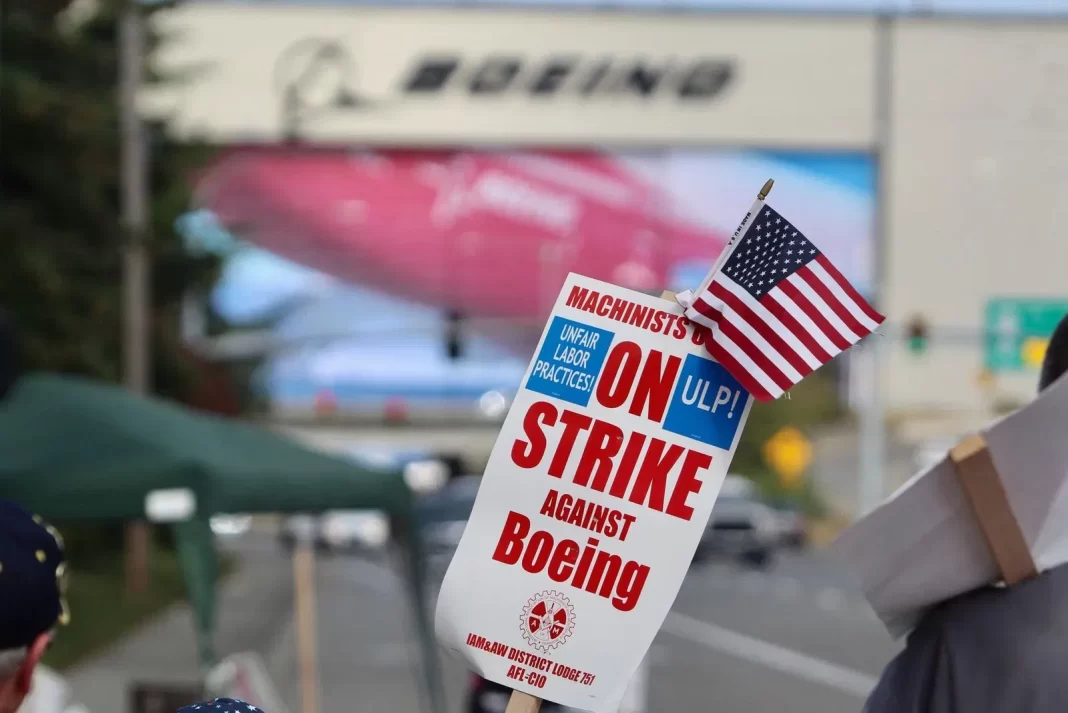Boeing factory workers who are currently on strike in the Puget Sound region will lose company-paid health care benefits “effective end of day” Monday if they don’t return to work.
According to Boeing’s website, union members who “return to work during the strike on or after Oct. 1” will have their “active health and insurance coverages (as in effect immediately prior to the strike) will be reinstated prospectively as of the return-to-work date.”
Monday marks day 18 of the Boeing machinists’ union strike. Union leaders said contract talks “broke off” with the company after their latest bargaining session Friday.
Under Washington state law, workers who lose health insurance due to a strike or labor dispute can apply for health and dental insurance through the Washington Health Benefit Exchange. Workers who lose coverage due to a strike have a 60-day special enrollment period before and after employer coverage ends, according to Senate Bill 5632, which went into effect in June.
Boeing said employees who lose coverage also “have an opportunity to continue benefits at their own expense, according to the terms of COBRA.”
A union representative told KOMO News if members do not choose COBRA, they can look for insurance online through the ‘Washington Health Plan Finder.’
In an update posted on social media, a regional district of the International Association of Machinists and Aerospace Workers asserted late Friday that Boeing “would not engage substantively” on key issues important to members — such as higher pay — and didn’t budge on calls to restore a defined-benefit pension that was axed 10 years ago.
No further negotiation dates were scheduled after Friday’s session led by federal mediators, IAM District 751 said. The union added that it remained “open to talks with the company, either direct or mediated.”
In a statement sent to The Associated Press on Saturday, Boeing said it was “prepared to meet at any time,” committed to bargaining in good faith and wanted to reach an agreement as soon as possible.
Last week, the aerospace giant issued what it termed its “best and final” offer. The proposal included pay raises of 30% over four years — up from 25% in a deal that union members overwhelmingly rejected when they voted to strike on Sept. 12, but still far below the union’s original demand of 40% over three years.
Boeing angered union leaders by announcing the revised offer to its striking workers through the media and setting a Friday night deadline for ratification. In light of pushback, Boeing backed down and gave the union more time. However, many workers have maintained the latest offer wasn’t good enough.
The strike by nearly 33,000 machinists now is in its third week, and negotiations also stalled earlier in the walkout that has halted production of Boeing’s best-selling airplanes. The strike will not disrupt airline flights anytime soon, but has put more pressure on a company that has already faced a series of financial, legal and mechanical challenges this year.




